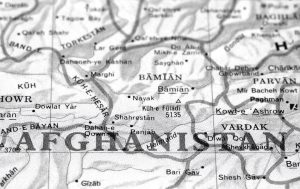Al-Qaida chief Ayman al-Zawahiri was killed in a U.S. drone attack in Kabul on July 31. Subsequent media reporting and expert commentary portray this development as bad news for the Taliban, which is likely to impact their ties with the United States and undermine their efforts to get international recognition and unlock the frozen $7 billion Afghan reserves.
However, alternatively, it can be argued that al-Zawahiri’s killing is a blessing in disguise for the Taliban’s de facto regime. His killing ahead of the Taliban’s first anniversary of returning to power would blunt al-Qaida’s effort to flourish in Afghanistan. More importantly, his killing is a rude awakening call for the Taliban to reconsider their ties with al-Qaida. Revisiting ties with the terrorist group can offer incentives to the Taliban.
Arguably, al-Zawahiri’s killing would strengthen the Taliban pragmatists who advocate distancing the regime from al-Qaida and sideline the hardliners whose rigid insistence on harboring and protecting al-Qaida have shone a negative light on the Taliban regime. From the get-go, hardliners like the Haqqani Network have been in favor of defending al-Qaida, in contrast to the pragmatists, who are primarily from the Taliban’s political office, such as Deputy Prime Minister Mullah Abdul Ghani Baradar and Deputy Foreign Minister Sher Abbas Stanikzai. If the pragmatists prevail, the Taliban’s ongoing transition from an insurgent to a political movement will compel the regime to distance itself from al-Qaida and focus on governance.
The United States intended to end its 20-year war in Afghanistan when the Doha Agreement was signed in 2020, and a joint declaration with four interconnected and interdependent elements was made public. The declaration discussed timelines for the U.S. exit, intra-Afghan political resolution, commitments to prevent terrorists from using Afghan soil to threaten other countries, and a comprehensive, long-lasting ceasefire. Unsurprisingly, the vague nature of the Doha Agreement also provides a legal benefit of the doubt to the Taliban.
The U.S. termed al-Zawahiri’s stay in downtown Kabul a violation of the Doha Agreement, while the Taliban said the drone attack that killed him was the violation. The Taliban maintain that they promised not to allow Afghan soil to be used to stage terrorist attacks against other countries; they never gave any commitment to entirely cut links with al-Qaida.
To believe that the Taliban have broken ties with al-Qaida is a classic example of naivete.
For the U.S., the Doha Agreement facilitated a safe exit from Afghanistan, and arguing otherwise might be a stretch. Apart from that, the U.N. report on militant activity in Afghanistan from February 2022 stated unequivocally there were no indications of any steps taken by the Taliban to limit the activities of foreign terrorist fighters in Afghanistan.
Following al-Zawahiri’s killing, the U.S. and the Taliban statements indicate that both sides are leaving enough space open for continued (limited) engagement under a least-common-denominator approach. Abandoning Afghanistan will not address the U.S. counterterrorism concerns. Even though the U.S. was successful in conducting a “preemptive and unilateral” action in this case, Taliban support on the security front remains crucial for the United States.
Despite the presence of mutual disdain, cooperation between both sides must take precedence. Considering the humanitarian and economic crisis in Afghanistan, the U.S. cannot leave the country abandoned. The United States’ limited engagement with the Taliban should continue, which offers the latter another window of opportunity to build bridges and remove suspicions.
An isolated Afghanistan sliding into civil war is far more dangerous than a Taliban-controlled Afghanistan where the U.S. can keep an eye on evolving terror threats. Given that, the Taliban can choose to engage like a rational actor with a country to run and choices to make. This also seems to be the best way to ease the pain the Taliban are inflicting on the Afghan public. Afghans continue to pay a hefty price for the geopolitical complexities, and a deadlock of any kind will only exacerbate their sufferings.
In the light of the killing, the gradual erosion and weakening of the al-Qaida network will reduce a significant burden on the Taliban. Had Zawahiri lived for a few more years, al-Qaida would have been a different beast altogether. This strike could be a wake-up call for the Taliban, compelling them to respect a semblance of human rights in the country to fend off economic foes.
Al-Zawahiri’s killing could be the beginning of a new road instead of its end, depending on how the Taliban evolve from here.

































